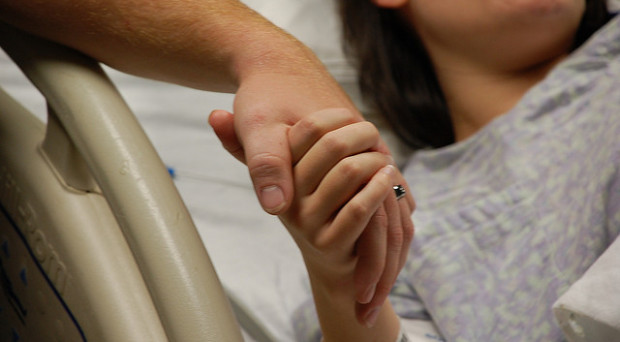
We know what we know; we don’t know what we don’t know. That seems clear and intuitive. But how do we know what we know? Knowledge comes in different forms. We knew about gravity before Newton discovered it. But we understood it in a different way when Newton could explain it.[i] New ways of thinking about it, talking about it, inquiring into it, and using it opened up.
Hospital chaplains occupy what could be described as a ‘pre-Newtonian’ state in health care. Unlike many of the medical disciplines, which are replete with models of understanding and methods of inquiry, there has been little research or evidence compiled about the benefits – or otherwise – of their work.
Chaplains know that people seek their care and seem to get something important to them from it. However, the means and ways in which their care benefits patients and integrates with the work of the medical professionals around them is not well understood.
Of course, this doesn’t mean that their work isn’t of use, people built buildings, walked upright and carried bags relying on and using gravity in the pre-Newtonian era after all. But what more could research and evidence add to their ability to help people effectively in what are usually very challenging circumstances?
Healthcare chaplains know that people seek their care and seem to get something important to them from it. Healthcare chaplains rely on and use the forces at play in the human spirit as deftly as people built buildings and walked upright and carried bags relying on and using gravity in the pre-Newtonian era. How much more could they do if a Newton of the discipline came along?
Waiting for the “Newton of Healthcare Chaplaincy” research is neither realistic nor necessary, however. A number of researchers are gravitating to this field of health care. In order to explore this emerging field of research, BMC Palliative Care has produced a special issue on the topic of hospital chaplaincy in palliative care that profiles some of this work.
All of these papers include chaplains, physicians and many others on the healthcare team, and as such are great examples of the interdisciplinary approach that is necessary in this field. The issue includes a conceptual model of the ‘physiology’ of the human spirit in the context of other domains that is rudimentary but built to generate testable hypotheses; hypotheses that can lead to data that will then modify the model. It includes a taxonomy of what chaplains do in clinical care and a study of how chaplains integrate into interdisciplinary teams. It also provides a thorough review of the concepts and data underlying dignity therapy, an approach that is particularly relevant to chaplains.
This nascent field is beginning to develop protocolized interventions that can be subjected to controlled trials. It will need to do this at the same time as preserving the deeply personal and spiritual aspects of the work of chaplaincy. We believe that the field of healthcare chaplaincy is on the threshold of a quantum leap in understanding – even without a Newton. As healthcare professionals and as human beings, we should expect, encourage, and contribute to this important area of understanding.
[i] The Machine, the ghost, and the limits of understanding Noam Chomsky https://www.youtube.com/watch?v=D5in5EdjhD0&sns=em posted April 30, 2012 recording of a presentation at University of Oslo September 2011
 The Palliative Care, Spiritual Care and Chaplaincy: The current landscape thematic series is available to read on the BMC Palliative Care website.
The Palliative Care, Spiritual Care and Chaplaincy: The current landscape thematic series is available to read on the BMC Palliative Care website.
Comments